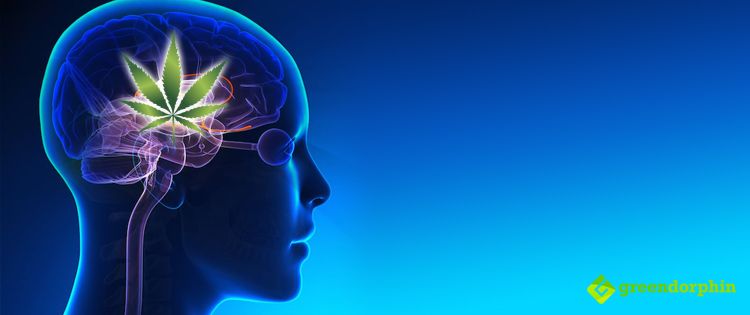Cannabidiol (CBD) is the second most abundant cannabinoid compound found naturally in the cannabis plant, next to THC.
Although THC is the primary psychoactive substance of cannabis and known for its medicinal properties, CBD stands out because it’s non-intoxicating and has the potential for a broader range of medical applications.
This is primarily why CBD oils and capsules, like these ones, and other related products are legal in much of the West.
How CBD Affects the Brain
Explaining how the brain works is very complicated, but we will give you the simplistic version as much as possible.
To understand how CBD affects the brain, we need to look at the structure of the brain cells or neurons.
The neurons contain cannabinoid receptors on the surface. These receptors are responsible for picking up signals from various stimuli.
In this case, cannabinoid receptors gather the “information” it receives from cannabinoids and transmits them inside of the cell.
The brain receptors are sensitive to all the chemical messengers produced both inside (like dopamine and serotonin) and outside the body, such as THC and CBD.
Therefore, when you ingest or inhale the vapor from CBD, the cannabinoid compound enters your body, travels through your bloodstream, and gets picked up by the brain.
There are many cannabinoid receptors in the body, but the two most common are CB1 and CB2.
CB1 are the most abundant cannabinoid receptors in the nervous system, especially in the brain cells. They interact with the psychoactive properties of THC, which causes people to get “high.”
CB2 are the most abundant cannabinoid receptors outside the nervous system. However, both receptors are found throughout the body.

These receptors transmit signals to the central part of neurons known as the axon hillock. The axon hillock acts like the manager of the entire neurons- processing the incoming signals and firing-off processed signals going to other cells.
When many neurons inside the brain “speaks” the same signal, they dictate what you have to think, feel, and do.
CBD Affects Different Receptors
Surprisingly, the cannabinoid compound doesn’t only interact with CB1 and CB2 receptors, but it can also enter the neurons through other receptors.
What’s even more surprising is that the neurons produce signals differently depending on which type of receptor interacts with the cannabinoid.
Opioid Receptors
Opioid receptors are associated with pain regulation. For painkillers to be effective, pharmacists need to target these receptors.
For unexplained reasons, the cannabinoid compound interacts well with opioid receptors. Thus, some medications with CBD are now being considered as potential substitutes for traditional pain killer medications.
Dopamine Receptors
Dopamine receptors have a crucial role in regulating moods and cognition. The right balance of dopamine is essential so that the brain can control your movement and emotional responses.
Dopamine receptors respond to the stimuli they pick up from the cannabinoid compound. Because of this, CBD is heavily considered as a potential medication for various behavior-related conditions.
It’s important to mention that there are very few studies conducted to verify the efficacy of cannabidiol in humans. Although the findings presented above look promising, most experiments used animal models.
Researchers need to do more studies to really establish CBD’s therapeutic potential.
- Red Vein Kratom Powder Vs CBD: Which Is A Better Choice? - December 18, 2023
- How CBD E-Liquids Are Making an Impact For Anxiety - November 27, 2023
- The 3 Mistakes To Avoid When Using Medical Marijuana - August 14, 2023


